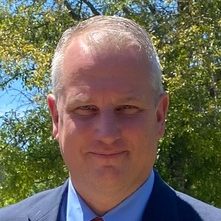In Jonathan Edwards’s seventy resolutions, resolution number 5 states, “Resolved, never to lose one moment of time; but improve it the most profitable way I possibly can.” As a bi-vocational pastor, this is a foundational truth I desire to adhere to as well.
Time is something we will never have more or less of. I am in year nine of my third pastorate. The first two were not effective in regard to time management. In fact, in my second pastorate, “burn out” flared up, and this led to my resignation. I was working 50 hours a week, preaching two sermons on Sundays and one on Wednesday evenings, and the church was 35 minutes away. I’m embarrassed to admit this, but I simply resorted to just “winging it” on Wednesdays, heading there in a rush when I would get off work, and a second Sunday sermon was just a half-baked presentation. Now I am older, and maybe wiser I suppose, and I have established a few principals both in my personal life and in the life of the church that have helped me pastor more effectively.
Ephesians 5:15-16a commands, “Therefore be careful how you walk, not as unwise men but as wise, making the most of your time.” I must always consider how I walk, “to live, to conduct one’s life.” It is very easy to become distracted and not use my time wisely, and as a bivocational pastor, I must have a disciplined time to study for the sermon.
It is very easy to become distracted and not use my time wisely, and as a bivocational pastor, I must have a disciplined time to study for the sermon.
The preaching of God’s Word is the highest honor and responsibility a man can have, and I should not step foot in the pulpit unprepared. I deeply understand that I am responsible for feeding the flock of God. First Peter 5:2 tells me to “shepherd the flock of God among you.” I should not feed them crumbs.
For this reason, I make sure to dedicate a certain amount of time solely to the preparation of the sermon without distraction. If it is in the morning, evening, or breaks during the day, we must be wise about using this time for preparation and not be foolish and waste time on fruitless things.
I learned many years ago that sermon preparation is time consuming. The philosophy of waiting until the last minute to get a message from God because you think it is more spiritual, well, is just foolish. Honestly, we all have preparation time at some point in our day, but often we just do not want to make use of it.
Making the most use of your time, “to redeem,” is to be wise with the time you have been given. Wasting time on social media arguments or thumbing through endless pages of videos to entertain yourself while the sermon goes unprepared is most assuredly not being wise. You have to be intentional in making good use of the time that you have. Do not let the politics of the world or needless time spent on social media steal your time when you can be preparing the sermon.
If you are finding frustration in sermon prep, you may need to look at your time and where it is being spent. It may hurt or take you out of your comfort zone, but 1 Timothy 4:15 states, “Take pains with these things; be absorbed in them, so that your progress will be evident to all.” The sermon to God’s people is the highest responsibility we have, and we have to make preparation time a daily priority.
In addition, general reading time is quite necessary too. I sometimes find that I miss reading the Scriptures in the busyness of preparing a sermon. I often take time at lunch or breaks at work to read without taking notes or thinking of a sermon. Time to just read. I read the same book over and over again for weeks. This helps me remember the who, what, when, what, and where of that book. I want to train my brain to remember and recall; as Psalm 119:11 says, “Your word I have treasured in my heart, That I may not sin against You.”
Lastly, we must not forget to devote time to our family and also prioritize times of rest. Every spare minute I have does not have to be devoted to ministry work. I can take to the woods, enjoy a trip to the beach or the lake, plant a garden, etc. These things are good and given as blessings by God for my enjoyment, but like Jonathan Edwards in his Resolution #41, I must consider the following: “Resolved, to ask myself at the end of every day, week, month and year, wherein I could possibly in any respect have done better.”
Plans change, but having a plan is better than no plan at all. It is important to look at where our time is spent and see if it could have been used better. I do this weekly. I refine it. I see where I failed and by the grace of God in my weakness pray to be better used by Him.
If we are struggling with time management, we can ask the Lord to give us wisdom to recognize where we are lacking, and he will, but we may not like what it reveals. Making good use of our time will often hurt because it interferes with the god-like world we have sometimes created and live in. We often think the world, people, and even God should revolve around us. To know more, to be more tuned into the Word of God, we must be disciplined, and that will always involve a hurtful peeling of the pride of our life. But, we must remember, it is not your time anyway, and it is not about us.
Lastly, if you like to write, blog or podcast, that is fine. But consider what is the top priority in your ministry as a pastor. Do not sacrifice sermon prep time for secondary issues. The flock you shepherd comes first, not a blog or podcast. While those extra methods of teaching may be helpful, and they generally are, the preaching of God’s word—the feeding of the flock—takes priority.
Manage your time wisely, and as Paul told Timothy, “Until I come, give attention to the public reading of Scripture, to exhortation and teaching” (1 Timothy 4:13). As you “take pains” with these things, it will be noticeable “so that your progress will be evident to all” (1 Timothy 4:15).




